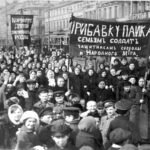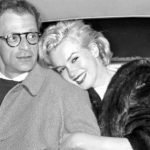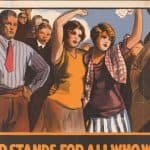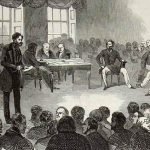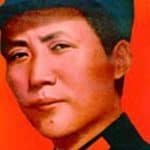At the time I addressed the Annual General Meeting of the Australian Society for the Study of Labour History last September and told how the Hawke Government’s Wages Accord had resulted in a reduction in the real wage of low and middle wage earners, while the real salaries of the more highly paid, had skyrocketed to record levels, the ACTU Secretary, Greg Combet, declared:
Average working hours have grown steadily since 1983, to the point where we now have the second longest average working hours for full time employees in the OECD and the largest proportion of people working more than 50 hours a week… There is widespread frustration in union ranks about politicians and political Parties. There is a justifiable feeling that much more could be done to assist working people and union organisation, particularly by Labor Governments. [1]
Well, I am delighted to be able to say that much more has been done by the Federal Parliamentary Labor Party ‘to assist working people and union organisation’, because it has already elected Mark Latham as its Leader. Polls are now proving that the Federal Parliamentary Labor Party can defeat the Liberals at the next election.
Recommended Reading
February Revolution: Causes, Location, and Outcome of the Russian Revolution
The Fall of the Berlin Wall: History, Meaning, Causes, Consequences
The History of Divorce Law in the USA
Gough Whitlam supported my view that Mark can win greater, electoral support for Labor than Kim Beazley, who was a Minister in the Hawke/Keating Governments which privatised the people’s Commonwealth Bank, floated the dollar, deregulated the financial industry, lowered tariffs and sold a whole list of other assets belonging to all of our people.
So, if Mark can get his Parliamentary colleagues to return to basic Labor principles, the Federal Party will certainly win back the army of battlers who have already elected Labor to office in Queensland, New South Wales, Victoria, Tasmania, South Australia, Western Australia, the Northern Territory and the Australian Capital Territory.
Introduction
During the whole of the 31 years I was a Member of the FPLP (1949–80), no one in Caucus or in the Whitlam Government ever proposed that Labor should sell the Commonwealth Bank or any of the other publicly-owned assets that were privatised during the period Hawke and Keating were in Government.
Nor did anyone in Caucus or in the Whitlam Government ever suggest that the Government should give foreigners the power to fix the rate of exchange on the Australian dollar. No one in the FPLP ever took steps towards allowing an uncontrolled inflow of foreign capital that would allow foreigners to capture ownership of Australian assets. Nor did any member of the FPLP ever give the slightest hint of support for a reduction of income tax on Company profits or upon individuals in receipt of very high incomes. No Minister in the Whitlam Government ever proposed a Wages Accord that would result in a reduction in real wages for lower and middle-income earners.
Yet, while the Hawke/Keating Government held the reins of power it made all of the following departures from true Labor principles.
- Privatised the Commonwealth Bank and other-publicly-owned assets.
- Allowed foreigners to fix the rate of exchange on the Australian dollar.
- Allowed the inflow of foreign capital so that foreigners could capture ownership of Australian industries.
- Reduced the income tax on very wealthy Australians and company profits.
- Introduced a Wages Accord that reduced the real wage of all the lower and middle-income earners.
Privatisation of Public Assets
The following comments were made by Bob Hawke, when National President of the Labor Party:
I think it’s abhorrent that a relatively small group of people — monopoly capitalists — can determine for motives of profit maximisation, what shall be available for the mass of the Australian people. [2]
The President of the ACTU (Mr Hawke) yesterday called on the Federal Government to nationalise the oil industry: ‘Of all the people we deal with, these are the ones who always pay least attention to the interests of the public’. [3]
The President of the ACTU and the Labor Party, Mr Hawke, believes business has done better under Labor than at any time since 1945. He was being interviewed on the Willesee Show last night. Mr Hawke said he was a Socialist, and ‘always will be one’. [4]
Mr Hawke said: ‘Not only do I not mind if the democratic capitalist system collapses, I positively would welcome it provided it was succeeded by democratic socialism’. [5]
The President of the ACTU, Mr R.J. Hawke, said: ‘The Government should take over Leylands Motor Car plant at Zetland and manufacture small cars. The Government runs an airline, so why shouldn’t it operate its own vehicle enterprise’. [6]
Mr Hawke in a television interview last night, advocated tax cuts for low and middle-income earners and tax increases for ‘the more affluent’ to create ‘a more equitable pattern’ in financing Government expenditure. He also said that in the inflation situation, this would have to be counteracted by ‘an increase in taxation on the more affluent’. He was speaking on the programme, Federal File. [7]
The former Liberal Prime Minister, Rt Hon. William McMahon, said yesterday, he was one of those who silently prayed that Mr Hawke might enter Parliament. ‘I regard him as somewhat comparable in talent in economic matters with myself’, Mr McMahon said. [8]
Bob Hawke, Prime Minister of Australia
When delivering his inaugural Light on the Hill oration at Bathurst in September 1985, he implored Labor Party Members to:
Keep fresh and green the memory, the example and the experience of the late Ben Chifley, by totally opposing the policies of the Liberals to privatise, in whole or in part, Australian Airlines, Qantas, the Commonwealth Bank, Telecom.
On 21 November 1987, Bob repeated his Light on the Hill oration with the moving and very sincere declaration: ‘Anyone who thinks about the issue of privatisation knows that it would mean higher prices, higher costs and higher fares’. 9
Latest Government Articles
How the Federal Parliamentary Labor Party Lost Its Way
The Brief: A Short Story on English Legal Codification
Nazis & America: The USA’s Fascist Past
In the same year, Prime Minister Hawke’s Treasurer, Paul Keating, put Labor’s opposition to selling publicly-owned assets in proper perspective by making the devastating declaration that to privatise the Commonwealth Bank, TAA and other public assets: ‘is simply vandalisation of Australia’s greatest assets’.
I have discovered that in 1985, when Paul made his touching appeal for the FPLP to oppose privatisation, he had already decided to support a plank of Liberal policy, namely, a Goods and Services Tax; because on 28 March 1985, he met with ACTU President, Simon Crean and its Secretary, Bill Kelty, at 8.00pm until midnight that day, to discuss his plan for the imposition of a 12 1/2 per cent GST. The record of that meeting reads:
Crean and Kelty agreed with the Treasurer’s diagnosis and felt there was no other way to go than the broad-based consumption tax route. They said they were prepared to go out and sell hard, a saleable package, including seeking an agreement on discounting. They agreed that the Treasurer’s proposal provided basis for such a package. They noted that they had fought hard to keep the options alive during the election; but their constituents were now starting to become a little restless; in part, because of the lack of firm options on the Table.
Kelty added, notwithstanding the arguments noted in the prevision paragraph, on grounds of loyalty, if the Prime Minister asked him to provide the excuse to walk away from tax reform eg by a statement that discounting would be impossible to deliver, Kelty would do so. [9]
Eight years later, when Paul went to Melbourne to deliver a victory speech to the ACTU Executive and found himself chatting over a cup of tea with Bill Kelty and Martin Ferguson,
‘Kelty giggled a little as he sipped his tea and said to Paul that there was one thing at least, he could thank the ACTU for, one thing more important than all the work it had done in the election …’. That much more important thing was that the ACTU had in 1985, killed the Goods and Services Tax. [10]
One might therefore ask: Why did Simon persuade the Special National Rules Conference which met in Canberra during October 2002, to alter the Rules by reducing trade union influence in the Party it established in 1891 to only 50 per cent?
The Labor Party began to lose its way from 1967 onwards when the politicians succeeded in winning the right to send a total of ten unelected politicians to the National Conference with full voting rights. Then they seduced the factional leaders into increasing the number of delegates from 46 to 189. But hold it! the number of delegates who will attend next year’s National Conference will be 400! Only half of whom will be representing the workers who formed Labor Party in 1891. My guess is that a large number of the non-union half of Conference delegates will be politicians; and those who are not politicians may have their fares and hotel expenses, etc, met by those wishing to buy their votes for the policies being advanced by the political head-kickers.
However, only two years after Bob delivered his Light on the Hill oration, it was reported that he told the ACTU: ‘The question that should be asked, is whether a public enterprise provided significant functions that a similar private enterprise would not provide?’. [11]
In the Epilogue to The Cameron Diaries, I quoted excerpts from a six-page letter I wrote to Prime Minister Hawke on 9 February 1988, which read:
The simple fact is that many Labor supporters are now saying there is no difference between Hawke Labor and Howard Liberal. They see the Hawke Government as one that is doing Howard’s job for him….Every politician should remember that the big battalions on election day are the little people… Politicians should remember that while millionaires have lots of money, each one has only one vote and that is not worth a single cent more than the vote of the poorest and most humble person who walks through the door of the polling booth on election day. [12]
With my letter, I sent Bob a copy of the speech I delivered on the same day, to members of the BREIF Club of Adelaide titled: PRIVATISATION IS PIRATISATION. 16
So, with the smiling support of the Liberal Opposition, the FPLP Government then sold the publicly-owned Australian Industry Development Corporation (AIDC), in 1989–90; AUSSAT (which provided satellite for TV and radio) 1989–90; Commonwealth Bank 1991–94; Australian Airlines, 1992–93; Commonwealth Serum Laboratories, 1993–94; Moomba-Sydney Pipeline System, 1993–94; Qantas, 1995–96; plus the planned sale of the Airports, 1996–97; and the Housing Loans Insurance Corporation, 1996–97, to the profiteers of private enterprise at bargain prices.
Examples of the give-away prices accepted by the Government were: the first tranche of Commonwealth Bank shares were handed over to buyers (including one of the Ministers) for a mere $5.40 a share which reached $32.90 on the Stock Exchange earlier this year. In the case of the Commonwealth Serum Laboratories, its shares were sold for $2.30 a share; and earlier this year reached $30.00 a share. But two and a half years ago, they reached $34.00 a share on the Stock Exchange. I know that several Labor Ministers and many members of Caucus were very unhappy with the Hawke and Keating Government’s decision to privatise the Commonwealth Bank and other publicly-owned assets. It was also bitterly opposed by the Trade Union Movement.
I now turn to the Hawke Government’s Wages Accord with the ACTU which reduced the real wage of low and middle income earners (the result of which is still with us). While this was, and isstill happening:
The average salary of Australia’s top one-hundred Chief Executives has topped $2 million for the first time — 38 per cent higher than last year. That is $38,461 per week— about 85 per cent of the annual wage… It means that the average top one hundred CEOs’ salaries have gone from 34 times the Average Weekly Earnings in 2001, to 44 times this year.
In a 33-page submission to the Senate Inquiry Into Poverty, my Union, the Australian Liquor, Hospitality and Miscellaneous Workers Union (LHMU) made the telling comments:
Our current industrial framework is forcing the low-paid to bear the brunt of concerns about inflationary pressure, whilst the over-paid, take no responsibility for the impact of their pay on prices. The low-paid struggle to make ends meet under this pressure; and it is deemed insufficient to call upon those at the top end to set a good example…
In fact, Australia has not had a Minimum Wage calculated on an analysis of household budgets, since the Basic Wage derived from the original Harvester Budget was abandoned in 1967.
News Weekly made a perfect analysis of the FPLP Government’s deregulation of our financial system as ‘nothing to be proud of — a massive escalation of foreign debt; and a frightening sell-off of Australian assets’. [14]
I now refer to the enormous cost of TV commercials during election campaigns. The total cost to both Parties in 1996, was $150 million which has made them beholden to the Big End of town. In 1975, Bob Hawke, the ACTU President, condemned the huge donations paid to the Liberal Party to help it overthrow the Labor Government elected by the people. [15] Fortunately, there is a simple solution for remedying the cost of such commercials which have become such a telling ingredient towards political corruption. This was spelt out by Dr Evatt in 1956, when the Menzies Government opened the door for the licensing of commercial television.
Evatt’s amendment, which was unanimously endorsed by the FPLP Caucus, made it a condition that such a licence shall carry the requirements that: ‘Political and industrial controversy on matters relating to current policies shall be free of charge and on an equitable basis’.16 When moving his amendment, Evatt made the compelling point that the airwaves are the collective property of all the Australian people; and as such, the people have the right, and the duty, to demand that a condition of a television or broadcasting licence to use their airways shall include the proviso spelt-out in his amendment. I sat through the whole of that debate and never heard Evatt handle any issue with greater logic.
At my instigation, the South Australian Branch of our Party urged the National Executive to request the FPLP Government to implement the Evatt amendment. But I was told it was opposed by the Democrats, thus forcing the Government to opt for a complete ban on political commercials. The amended Bill when carried, went on appeal to the High Court with the claim it was a denial of free speech, and was declared to be ultra vires the Constitution. But Dr Evatt’s amendment was not a denial of free speech: It merely demanded that ‘free speech’ be free of charge!
While I was State President of the Labor Party in South Australia, the total cost of our 1947 state election campaign was only £1, 100. every penny of which was donated by our affiliated trade unions. Therefore, we owed no favours to big business and the media barons.
Gary Gray, who was national Secretary of the Labor Party from 1993–99, confessed that between 1992 and 1995, the Labor Party received a total of $67 million from the Corporate Sector, adding: ‘The Whitlam Government had taken office without any financial help from Big Business; which explained its lack of understanding about how the private sector operates’. [17] It is not true that Prime Minister Whitlam did not understand how the private sector operates; because it was reported that Gough once told one of his Ministers:
When the Corporate Sector gives a Party a million dollar donation to its Campaign Fund, it expects to get ten million dollars in tax and other benefits, which is something a Labor Government has never done.
That’s why I told Gary that when the Corporate Sector gave Labor a $67 million donation towards it elections campaign, it expected to get $670 million in tax concessions and other benefits.
Gough was, indeed, the best Leader of the FPLP since Ben Chifley! His Government gave Australia Medibank, free University education, and ended our involvement in America’s war against Vietnam. And, he never repudiated Labor’s deep commitment to democratic socialism.
When one remembers why Labor established the Commonwealth Bank, and understands why the Tories were opposed to it, I find it hard to ever understand why the FPLP sold it! Was it due to an ignorance of Labor history or was it due to the crass stupidity of their bureaucratic advisers? If these were not the reasons, was there some sinister motive for such a base betrayal of Labor’s proud record of past achievement? I repeat, it was not the trade unions who advocated the tragic mistakes made by the FPLP Government.
The decision of the FPLP to sell the Commonwealth Bank and the other public assets I have listed, was the most glaring example of the gap that developed between the Hawke/Keating Governments and Labor’s grassroots; but privatisation was not the only issue that broke the hearts of Labor’s ‘True Believers’. 27
In my 17-page Submission to the Hawke-Wran Review, I made the following comments:
Labour’s battlers did not desert Labor. It was the Federal Parliamentary Labor Party that deserted the battlers! Fortunately for the ALP, Labor voters now see two quite different Labor Parties; One is the Labor Party that now governs in Queensland, New South Wales, Victoria, Tasmania, South Australia, Western Australia, Northern Territory, and the Australian Capital Territory.
The other is the failed Federal Parliamentary Labor Party that has suffered its third successive defeat and its lowest primary vote for sixty years. I repeat: Unless it confesses to its past mistakes and gives a solemn undertaking to never again depart from basic Labor principles, its defeats will continue.If that is not done, voters will have every right to suspect that a future Federal Parliamentary Labor Party Government may repeat the unforgivable mistakes it committed between 1983 and 1996; and, the drift of traditional Labor voters to other Parties will accelerate! We must always remember it is always better to confess to an error than to go on living a lie.
We now see the beginning of the end of the Federal Parliamentary Labor Party as we once knew it; and there is a huge gap separating the Federal Parliamentary Labor Party from the Labor Party in all States and territories; which I repeat, is not the fault of the Trade Union Movement.
It is untrue and quite unfair, for some of our FPLP politicians, to blame the trade unions for the disastrous decisions made by their Government during its term of office. Kim Beasley (Senior) correctly identified the reason for the decline of the FPLP when he declared: ‘It turned its back on the cream of the working class in its rush to embrace the dregs of the middle class’.
Explore More Government Articles
The History of Divorce Law in the USA
How the Federal Parliamentary Labor Party Lost Its Way
Nazis & America: The USA’s Fascist Past
Mao and Fanon: Competing Theories of Violence in the Era of Decolonization
The Brief: A Short Story on English Legal Codification
The History of Hardwicke’s Marriage Act of 1753
I conclude my address on the note that, in spite of what has happened to the Federal Parliamentary Labor Party, we still have a really great Labor Party in every state and territory; and in Tasmania and Victoria, Labor now holds a majority of Seats in the Legislative Council for the very first time in history. I know this will find every non-Liberal voter in the Commonwealth, continuing to use his or her vote to keep it that way.
By Clybe R. Cameron
Endnotes
1.Australian Options, Spring 2003, pp. 4–5.
2.Australian, 13 March 1975.
3.Age, 30 March 1974
4.Sydney Morning Herald, 10 June 1974.
5.This Day Tonight broadcast, 22 August 1974.
6.Australian, 24 September 1974.
7.Sydney Morning Herald, 1 July 1974.
8.Advertiser, 29 September 1976.
9. John Edwards, Keating: the Inside Story, Viking, Ringwood, Vic, 1996, pp. 270–271.
10.Ibid., pp. 278–279.
11.Advertiser, 10 September 1987.
12. Clyde Cameron, The Cameron Diaries, Allen & Unwin, Sydney, 1990, p. 867.
13. Alan Kohler in Australian Financial Review, 6 November, 2002.
14.News Weekly, 22 March 1997.
15.Sydney Morning Herald, 15 May, 1975.
16. Hansard, House of Representatives, vol.10, 19 May, 1956.
17.Advertiser. 6 June 1997.
